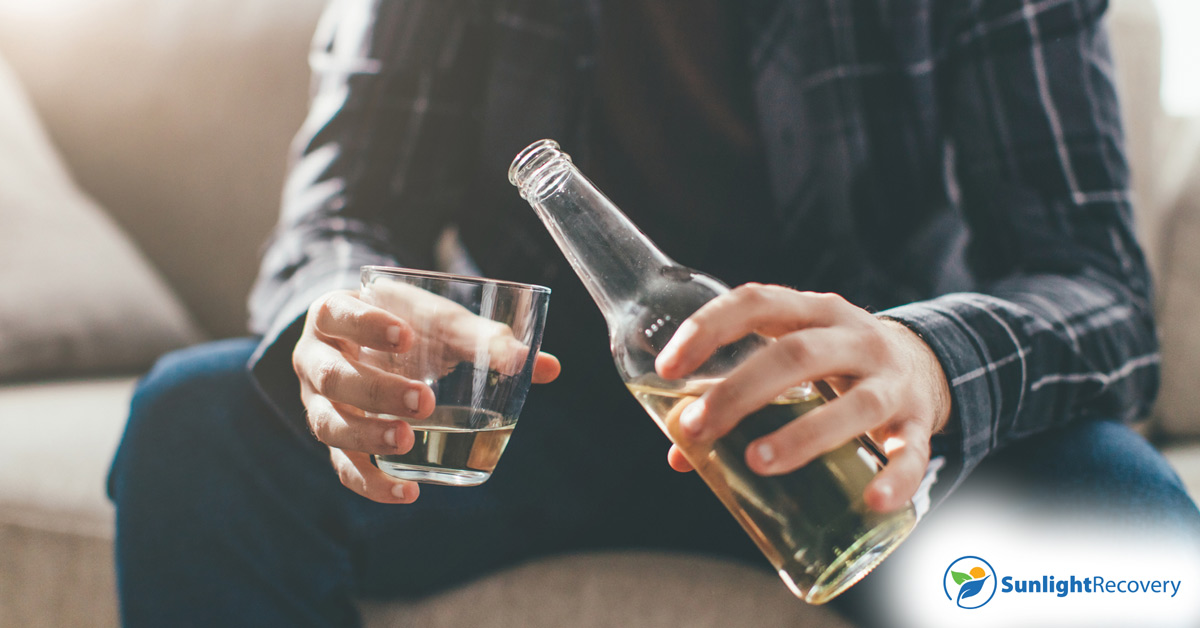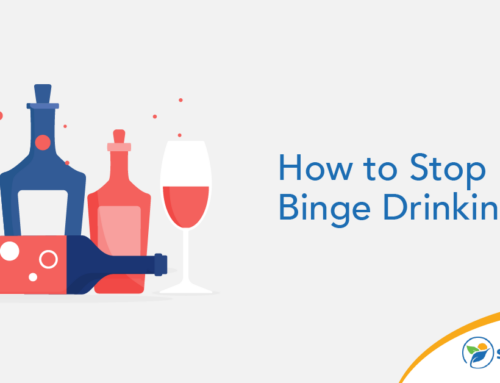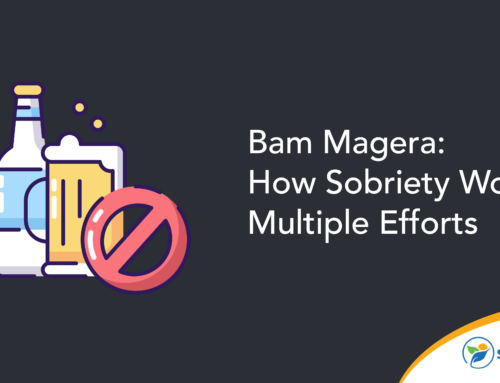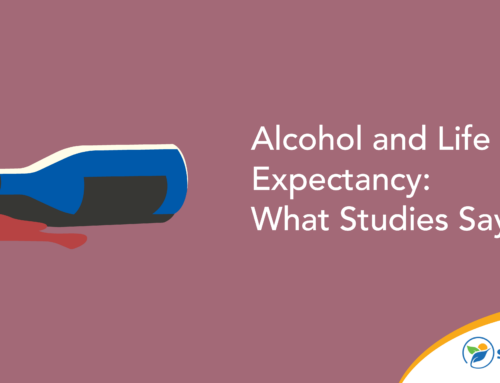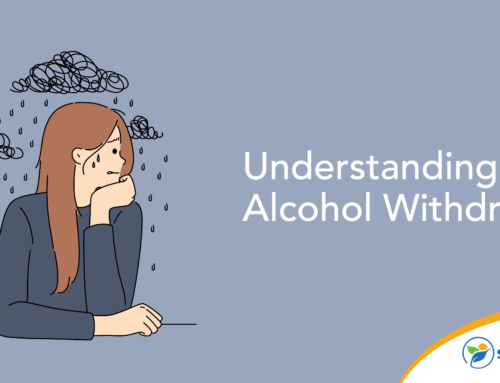In theory, alcohol is supposed to make you feel relaxed. And it does — at first. But then the effects wear off, leaving you feeling sad and anxious. How can something that makes you feel so good end up making you feel so bad? The answer is simple: Despite its reputation as a social lubricant and mood enhancer, alcohol is actually classified as a depressant drug.
But why is alcohol considered a depressant, and what does that mean? Read on as we explore the science behind this classification and what that means for people on the path to recovery.
What Are Depressants?
Depressants are drugs that slow the body and brain. They can be used to treat anxiety, insomnia and other disorders; unfortunately, they’re also often abused by people who want to feel relaxed and calm.
When taken as prescribed by a doctor, depressants can help you relax and sleep without feeling groggy in the morning. When abused, however — which is very easy to do — depressants can make you drowsy for hours or even, in some cases, prove fatal.
But is alcohol a depressant, since it lifts your spirits? Let’s take a detailed look below.
How Alcohol Affects the Central Nervous System
The central nervous system controls the body’s functions, including breathing, blood flow, heartbeat and movement. It consists of the brain and spinal cord, with the brain also being responsible for decision-making and processing information from our five senses.
When you drink alcohol, it travels through your bloodstream to your brain. Once there, it triggers several chemical changes, including:
- The secretion of gamma-aminobutyric acid (GABA), which slows down the body’s processes
- The release of dopamine and serotonin, pleasure chemicals that generate a sense of happiness and relaxation
- A decrease in the production of glutamate, which accelerates the body’s functions
All these chemical changes in your brain lead to altered feelings and thoughts, making you feel relaxed or euphoric. However, alcohol also slows down the messages traveling between neurons, which can lead to decreased coordination and motor skills.
So, while alcohol may seem like fun, it’s essential to remember that it can significantly affect your central nervous system and overall well-being.
Short-Term and Long-Term Effects of Alcohol on Mood
Drinking too much alcohol can have a serious effect on your mood. But what is “too much”? According to the Centers for Disease Control and Prevention (CDC), the recommended daily limit of alcohol is no more than two drinks for men and one for women. If you drink more than this, it can cause noticeable mood swings and other long-term health problems.
If and when you drink, we recommend sticking to CDC-approved limits. Exceeding them can result in a variety of effects — almost all of which can prove detrimental to your health.
Short-Term Effects
- Feeling relaxed and happy
- Feeling less inhibited (i.e., talking more than you normally would)
- Feeling sleepy or tired (after some time)
- Not remembering everything that happened while you were drinking (i.e., blacking out)
If you’ve consumed more than one drink within a few hours, these effects may last up to 3 hours after you stop drinking.
Long-Term Effects
- Depression
- Anxiety disorders
- Mood swings
- Sleep disorders
In addition to these long-term effects, alcoholism can also lead to other health problems, such as cirrhosis or pancreatitis.
The Link Between Alcohol Use and Depression
Alcohol use and depression are two complex issues that can be interlinked in many ways. While alcohol may provide temporary relief from the symptoms of depression, it can also worsen the condition in the long run.
Studies have found that people who suffer from depression are more likely to consume alcohol to self-medicate. But because alcohol is a depressant, it can actually exacerbate the symptoms of depression. This can lead to a vicious cycle of drinking to alleviate the symptoms of depression but actually making it worse it over time.
It’s important to note that not everyone who drinks alcohol will develop depression, and not everyone with depression will turn to alcohol. However, it’s important to recognize the potential link between the two and address them separately to ensure proper treatment.
If you or someone you know is struggling with alcohol or depression, seeking professional help is the best course of action. A qualified therapist or mental health professional can help you identify the root causes and manage it going forward.
How Alcohol’s Depressant Effects Can Lead to Addiction
The more a person drinks, the more their brain adapts to the depressant effects of alcohol, leading to tolerance. Tolerance is when a person needs more alcohol to achieve the same high as before, which can quickly spiral into addiction.
What’s more, long-term alcohol abuse can cause changes in the brain’s chemistry, leading to physical dependence. This means the body becomes reliant on alcohol to function normally, and withdrawal symptoms can occur if a person tries to quit.
Potential Dangers of Using Alcohol as a Coping Mechanism
For many people struggling with depression, alcohol can seem like a tempting way to cope with the pain and numbness they’re experiencing. It’s easy to see why: Drinking can provide temporary relief from anxiety and depression symptoms, even helping people feel more social and relaxed in the short term.
However, relying on alcohol as a coping mechanism for depression can be incredibly dangerous. Not only is alcohol highly addictive, but it can actually worsen depression symptoms in the long run.
Other potential dangers of using alcohol as a coping mechanism include:
- Physical health problems, such as liver damage, high blood pressure and heart disease
- Impaired cognitive function, leading to memory loss, impaired judgment and a higher risk of accidents
- Interference with other treatment methods for depression, such as antidepressant medications
- Risk of addiction and alcohol dependence
- Negative impact on relationships, work and overall well-being
- Higher risk of engaging in risky or dangerous behaviors while under the influence of alcohol
- Increased risk of suicidal thoughts and behaviors
Therapy, exercise and meditation encourage similar emotional highs without the physical detriments. They can also help address the underlying causes of depression and provide long-term relief.
If you or someone you know is struggling with depression and using alcohol as a coping mechanism, seeking professional help is essential.
Recovery Is Possible
It can be tough to confront alcohol addiction and depression on your own, but treatment options are available to help you overcome these challenges. Sunlight Recovery offers a safe and compassionate environment where you can receive the support you need to get your life back on track.
Our treatment programs are designed to meet your specific needs and address the root causes of your addiction. From medically assisted detox to individual and group therapy sessions, we offer a range of evidence-based treatments proven to be effective.
Don’t let addiction control your life. Contact us today and take the first step towards a brighter future.


